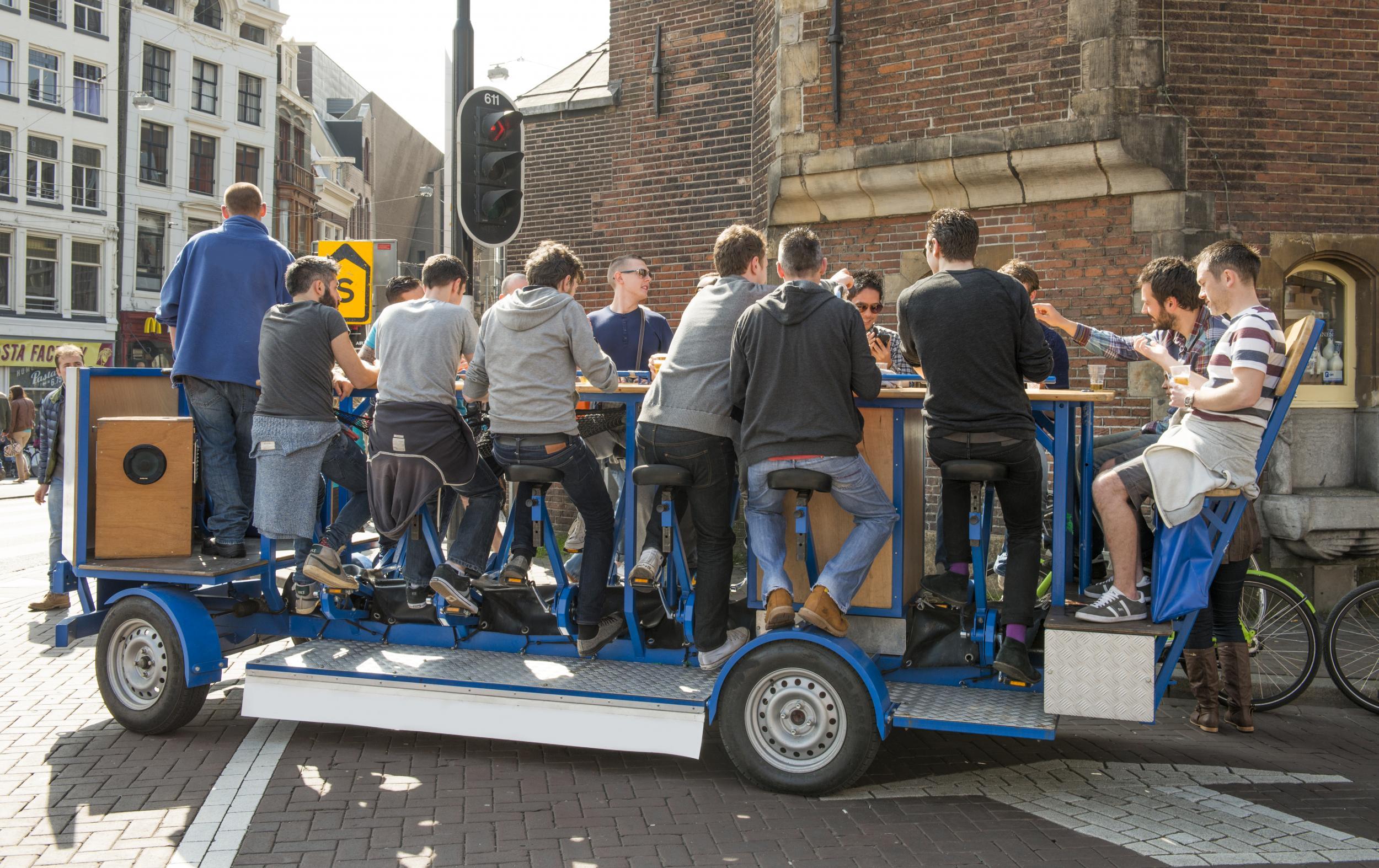Amsterdam to hike tourist tax and clamp down on beer bikes and Airbnb
Political parties unite to fight the “Disneyfication” of the Dutch capital

Your support helps us to tell the story
From reproductive rights to climate change to Big Tech, The Independent is on the ground when the story is developing. Whether it's investigating the financials of Elon Musk's pro-Trump PAC or producing our latest documentary, 'The A Word', which shines a light on the American women fighting for reproductive rights, we know how important it is to parse out the facts from the messaging.
At such a critical moment in US history, we need reporters on the ground. Your donation allows us to keep sending journalists to speak to both sides of the story.
The Independent is trusted by Americans across the entire political spectrum. And unlike many other quality news outlets, we choose not to lock Americans out of our reporting and analysis with paywalls. We believe quality journalism should be available to everyone, paid for by those who can afford it.
Your support makes all the difference.Amsterdam, party capital and stag do destination du jour, is calling time on its 24/7 party.
Following in the footsteps of other major tourist destinations, such as Barcelona and Venice, the city’s main political parties have announced measures to address the impact of mass tourism on the city in an effort to reverse the “Disneyfication” of the Dutch capital.
A coalition of four political parties, who are in negotiations to form the new city government, announced a series of agreed reforms to bring “balance” to the city.
The proposals will crack down on “fun rides” like beer bikes, Segways and boozy boat trips, divert cruise ships from docking in the city centre and ban Airbnb short-term rentals in the city’s busiest areas. The existing tourist tax is also set to rise from between 4 and 6 per cent to 7 per cent, an endeavour that is estimated to raise $105 million a year by 2022.
“We have to ensure that the city stays liveable for all residents,” Yvette Hofman, spokesperson for the green-Left party GroenLinks, told The Telegraph. “This is a subject that really matters to residents, who have felt under attack by increasing crowds, partly due to Airbnb and illegal hotels.
“They have complained that they no longer know their neighbours and of [a tourist] monoculture in the centre. This is about balance.”
The announcement comes a month after Eurostar announced a direct train service from London to Amsterdam, and follows a similar approach to those adopted by cities such as Venice, which has introduced permits and installed turnstiles, and Barcelona, which has banned hotels from opening last year.
Tourism was an integral part of the recent city elections in Amsterdam, where tourist rental apartments have been criticised for exacerbating the severe housing shortage.
The city continues to be one of Airbnb’s most popular destinations and has seen a huge rise in tourist numbers, with 18 million people expected to visit this year, according to the research bureau SEO.
Join our commenting forum
Join thought-provoking conversations, follow other Independent readers and see their replies
Comments